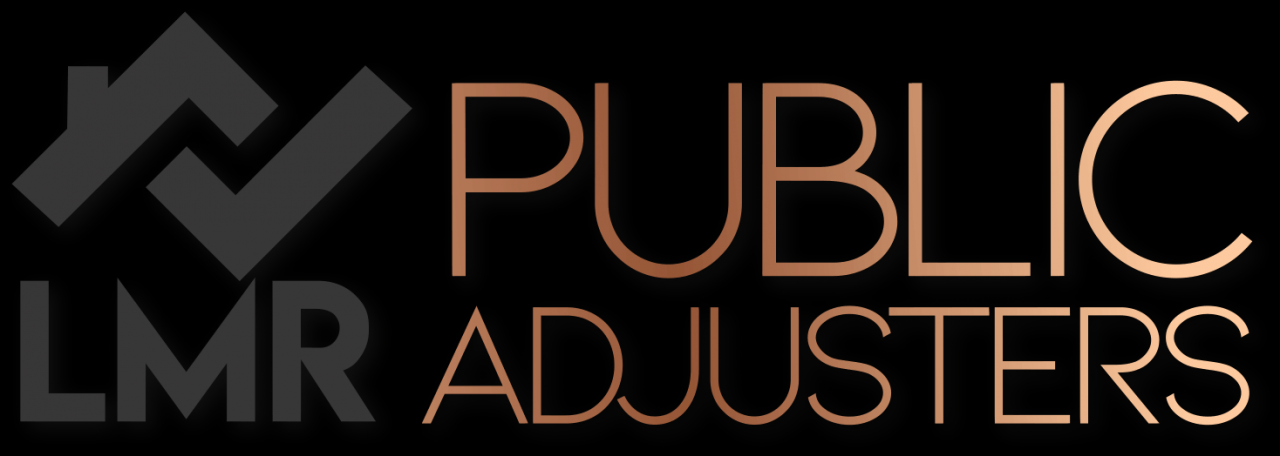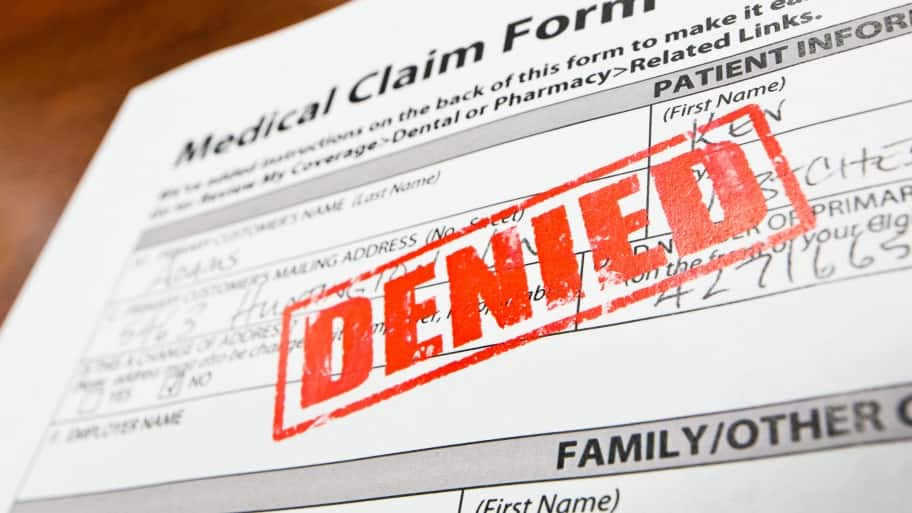How to appeal a denied insurance claim for medical expenses? Navigating the frustrating world of insurance denials can feel like a bureaucratic maze. But don’t worry, you’re not alone! Millions face this issue every year, and understanding the process is key to getting the coverage you deserve. This guide breaks down the steps, from understanding your policy to crafting a compelling appeal, giving you the tools to fight for your rightful medical reimbursements.
We’ll explore common pitfalls and offer strategies to successfully navigate this challenging situation, ensuring you’re equipped to reclaim what’s rightfully yours.
This comprehensive guide walks you through each step of the appeals process, from meticulously gathering necessary documentation to crafting a persuasive appeal letter that highlights the validity of your claim. We’ll uncover the common reasons for denial, providing practical solutions and actionable advice to overcome these hurdles. Learn how to effectively communicate with your insurance provider, track your appeal’s progress, and understand your options if your initial appeal is unsuccessful.
With clear explanations and real-world examples, we’ll empower you to confidently navigate the appeals process and achieve a positive outcome.
Understanding Your Insurance Policy

Navigating the appeals process for a denied medical claim can feel overwhelming, but understanding your insurance policy is the first crucial step. Your policy is a legal contract outlining your rights and the insurer’s responsibilities. Familiarizing yourself with its specifics is essential for a successful appeal.Your policy details the specific procedures you must follow to appeal a denied claim.
This includes the necessary documentation, the forms to complete, and the individuals or departments to contact. Ignoring these procedures can severely hinder your appeal.
Appeals Process Details
The appeals process is typically Artikeld in a dedicated section of your policy, often titled “Grievances and Appeals” or something similar. This section will specify the steps involved, including deadlines, the required supporting documentation (such as medical records, bills, and explanations of benefits), and the contact information for the appeals department. Look for s like “appeal,” “dispute,” “reconsideration,” or “internal review” within the policy document’s index or table of contents.
Some policies may even provide a flowchart outlining the appeals process. For example, a policy might state that you must submit your appeal within 30 days of receiving the denial notification, and that the appeal must include a detailed letter explaining why you believe the denial was incorrect, along with supporting documentation.
Timeframes for Filing an Appeal
Insurance policies usually specify a strict timeframe for filing an appeal. Missing this deadline often results in the denial becoming final. These deadlines are typically stated in days or weeks following the initial denial notification. It’s crucial to note the exact number of days allowed and mark it on your calendar. Failing to meet the deadline could mean forfeiting your right to appeal.
For instance, a common timeframe is 30 days from the date of the denial letter. Some policies might offer an extension under extenuating circumstances, but this is not guaranteed and must be requested in writing and with appropriate justification.
Clauses Relevant to Denied Medical Expense Claims
Specific clauses within your policy directly address denied claims. These often relate to pre-authorization requirements, covered services, exclusions, and benefit limits. Pay close attention to clauses detailing “covered benefits,” “exclusions,” and “pre-authorization.” For example, a clause might state that certain procedures require pre-authorization, and failure to obtain it will result in denial of the claim. Another clause might list specific medical services or conditions that are not covered under the policy.
Understanding these clauses is crucial in formulating your appeal argument. You should also look for clauses specifying the process for appealing a denial related to a pre-authorization issue or a claim denied due to a service not being deemed medically necessary.
Locating the Appeals Section
Finding the appeals section within your insurance policy requires a systematic approach.
- Use the Table of Contents: Most policies include a table of contents listing key sections and page numbers. Look for entries related to “appeals,” “grievances,” “disputes,” or “claims review.”
- Utilize the Index: Similar to a table of contents, the index provides an alphabetical listing of s. Search for terms like “appeal,” “denial,” “reconsideration,” or “coverage dispute.”
- Conduct a Search (if digital): If you have a digital copy of your policy, use the search function to find relevant s. This is a faster method than manual searching.
- Read Carefully: Once you’ve located the section, read it thoroughly. Pay close attention to deadlines, required documentation, and contact information.
Remember, carefully reviewing your policy is not just advisable, it’s essential. It’s your best resource in understanding your rights and navigating the appeals process successfully.
Gathering Necessary Documentation
Appealing a denied insurance claim requires meticulous documentation. A well-organized and comprehensive appeal significantly increases your chances of a successful outcome. Think of your appeal as building a strong case; each document is a brick in that wall. The more complete and accurate your documentation, the stronger your case will be.Preparing your appeal involves more than just sending in the denial letter.
You need to gather all relevant information to support your claim. This will involve collecting medical records, bills, and other supporting evidence. Remember, the insurance company will scrutinize every detail, so accuracy and completeness are paramount.
Required Documents Checklist
This checklist provides a comprehensive overview of the documents you’ll typically need for your appeal. While specific requirements may vary depending on your insurance provider and the nature of your claim, this list serves as a strong starting point. Always refer to your policy and the denial letter for precise instructions.
- The Insurance Company’s Denial Letter: This is your starting point. It explains the reason for the denial and Artikels the appeals process.
- Copies of Your Medical Records: These include doctor’s notes, lab results, diagnostic imaging reports (X-rays, MRIs, CT scans), hospital records, and any other relevant medical documentation related to the denied services.
- Explanation of Benefits (EOB): This document summarizes the services provided, the charges, and the payments made by your insurance company. It highlights the discrepancy between what was billed and what was covered.
- Itemized Bills: Detailed bills from healthcare providers outlining the services rendered, the charges for each service, and any applicable codes.
- Policy Documents: Your insurance policy and any relevant amendments or riders. This ensures you can demonstrate your coverage and the insurer’s obligations.
- Supporting Documentation: This could include letters from your doctor supporting the medical necessity of the treatment, expert opinions, or other evidence that contradicts the insurer’s denial rationale.
Organizing Your Documents
Organizing your documents efficiently is crucial for a smooth and effective appeal. A disorganized submission can confuse the reviewer and weaken your case. Consider these suggestions:Create a clear and concise file system, either digitally or physically. A simple approach is to create folders for each category listed above. Number each document sequentially within each folder for easy reference.
Use a cover letter to clearly summarize your appeal and reference the enclosed documents. A well-structured appeal shows attention to detail and respect for the appeals process.
Importance of Accurate and Complete Medical Records
Accurate and complete medical records are the cornerstone of a successful appeal. They provide irrefutable evidence of your medical condition, the necessity of the treatment, and the services rendered. Inaccurate or incomplete records can undermine your appeal, even if other documentation is strong. Missing information or inconsistencies can lead to delays or outright rejection. Ensure all records are legible and clearly show the dates of service, the diagnoses, the procedures performed, and the physician’s signature.
Examples of Supporting Documentation
Beyond the basic medical records, additional supporting documents can significantly strengthen your appeal. For instance, if your denial is based on a lack of medical necessity, a letter from a specialist explaining why the treatment was essential would be crucial. If the denial is based on pre-authorization issues, documentation showing you attempted to obtain the necessary approvals can help.
Another example would be a second opinion from a different physician supporting the treatment. These supporting documents provide additional weight and credibility to your claim.
Navigating a denied medical insurance claim can be frustrating, but understanding your rights is key. Before you appeal, remember that the type of insurance you have matters; for example, knowing the differences between coverage offered by policies like what are the differences between term life insurance and whole life insurance can impact your approach. Successfully appealing a denied claim often involves meticulously documenting your expenses and following the insurer’s appeals process step-by-step.
Drafting Your Appeal Letter

Crafting a compelling appeal letter is crucial for successfully overturning your denied insurance claim. A well-written letter clearly and concisely presents your case, highlighting the reasons for your disagreement and providing supporting evidence. Remember, your goal is to persuade the insurance company to reconsider their decision.A professional and persuasive appeal letter should follow a structured format, including a clear opening, a detailed explanation of the dispute, and a confident closing.
Using a template can help maintain consistency and ensure all necessary information is included.
Appeal Letter Template
Consider this template for your appeal letter:
[Your Name][Your Address][Your Phone Number][Your Email Address][Date][Insurance Company Name][Insurance Company Address]Subject: Appeal of Denied Claim – [Your Claim Number]Dear [Insurance Adjuster Name],[Opening Statement – Briefly explain the reason for the appeal and your claim number.][Body Paragraphs – Detail the reasons for disputing the denial. Provide specific evidence supporting your case, such as medical records, doctor’s notes, and receipts.][Closing Statement – Reiterate your request for reconsideration and express your confidence in a positive outcome.]Sincerely,[Your Signature][Your Typed Name]
This template provides a clear framework. Remember to replace the bracketed information with your specific details.
Strong Opening and Closing Statements
The opening statement should immediately grab the attention of the insurance adjuster and clearly state your intention. A strong opening might read:
“This letter formally appeals the denial of my medical claim, number [Your Claim Number], which was denied on [Date of Denial]. I believe the denial was based on a misunderstanding of the policy and the medical necessity of the services rendered.”
Similarly, the closing statement should reiterate your request and express confidence in a fair resolution. A strong closing might be:
“I respectfully request a thorough review of my claim and a reversal of the denial. I am confident that a complete review of the provided documentation will demonstrate the validity of my claim and the medical necessity of the expenses incurred.”
Specific Reasons for Disputing the Denial
Clearly articulate each reason for disputing the claim denial. This might involve referencing specific policy clauses, highlighting discrepancies between the medical necessity of the treatment and the insurance company’s assessment, or explaining why the denial is inconsistent with previous coverage decisions. For example, you might state:
“The denial letter cites ‘lack of medical necessity’ for the [procedure/treatment]. However, Dr. [Doctor’s Name]’s detailed report (included as Exhibit A) clearly Artikels the medical necessity of this procedure given my [medical condition]. The report explicitly demonstrates that the procedure was the only appropriate course of action to address my [specific medical issue].”
Articulating Medical Expenses and Necessity
Clearly itemize all medical expenses, including dates of service, provider names, and the amount charged for each service. Attach supporting documentation, such as receipts, bills, and Explanation of Benefits (EOB) statements. Explain the medical necessity of each expense, referencing your doctor’s notes and any other relevant medical records. For instance:
“The total expenses incurred are [Total Amount]. This includes [Amount] for the initial consultation with Dr. [Doctor’s Name] on [Date], [Amount] for the [Procedure] performed on [Date], and [Amount] for subsequent follow-up appointments. All expenses are supported by the attached receipts and medical records, demonstrating the necessity of these services in the treatment of my [medical condition].”
Understanding the Denial Reason

Navigating the labyrinthine world of insurance claim denials can feel overwhelming, but understanding the reason for the denial is the crucial first step towards a successful appeal. Insurance companies often cite various reasons for rejecting medical expense claims, and recognizing these reasons is key to crafting a compelling appeal.Knowing the specific reason for the denial allows you to tailor your appeal to address the insurer’s concerns directly.
Generic appeals rarely succeed; a targeted approach, highlighting the specific points of contention, significantly improves your chances of getting your claim approved. This section will break down common denial reasons and provide strategies for effectively countering them.
Common Reasons for Medical Claim Denials
Insurance companies deny medical claims for a variety of reasons, often stemming from policy exclusions, procedural errors, or inadequate documentation. Understanding these reasons is paramount to building a robust appeal.
- Pre-authorization not obtained: Many procedures require pre-authorization from the insurer before treatment. Failure to obtain this authorization often leads to denial.
- Service not covered: Your policy may not cover specific services, treatments, or medical facilities. This is a common reason for denial, especially with experimental or elective procedures.
- Incorrect coding or billing: Mistakes in medical billing codes can lead to claim denials. Errors can arise from the provider’s end or from the administrative processes involved.
- Lack of medical necessity: Insurers may deny claims if they deem the treatment not medically necessary based on your diagnosis and condition. This often involves a review of your medical records by their medical reviewers.
- Exceeding policy limits: Your policy may have annual or lifetime limits on coverage. If your expenses surpass these limits, the claim may be partially or fully denied.
- Timely filing not met: Claims must typically be submitted within a specified timeframe. Missing the deadline can result in denial, regardless of the validity of the claim.
Addressing Specific Denial Reasons in Your Appeal
Effectively addressing the denial reason requires a tailored approach. Simply restating the claim won’t suffice. You must directly counter the insurer’s arguments.
- Pre-authorization not obtained: If pre-authorization was overlooked, explain the circumstances. Provide documentation showing attempts to obtain it, or demonstrate that the situation warranted immediate treatment, precluding pre-authorization.
- Service not covered: If a service is deemed uncovered, provide evidence supporting its medical necessity. Cite medical literature, expert opinions, or comparable cases where similar services were covered. Consider appealing to the insurer’s grievance process or external review.
- Incorrect coding or billing: Provide corrected billing information and documentation from your healthcare provider. This requires actively engaging with your provider to rectify any errors.
- Lack of medical necessity: This requires a strong appeal. Provide detailed medical records, doctor’s notes, and supporting evidence demonstrating the necessity of the treatment. A second medical opinion can be particularly helpful.
- Exceeding policy limits: This is difficult to overturn. Explore options like payment plans or appealing to the insurer’s compassion policy for exceptional circumstances.
- Timely filing not met: Provide evidence of extenuating circumstances that prevented timely filing, such as a serious illness or natural disaster. Appealing to the insurer’s fairness is crucial here.
Countering Common Insurance Company Arguments
Insurance companies often use standardized arguments to deny claims. Understanding these arguments allows for a more effective counter-strategy. For instance, if they claim a lack of medical necessity, you need to present irrefutable evidence demonstrating the treatment was essential for your health. If they cite a policy exclusion, investigate whether the exclusion applies in your specific situation and argue for an exception.
Always maintain a professional and respectful tone throughout the appeal process, even when countering their arguments. Presenting your case clearly, concisely, and with strong supporting evidence is paramount.
Filing Your Appeal
Successfully navigating the appeal process hinges on understanding the various submission methods and diligently tracking your progress. Ignoring these steps can significantly delay or even jeopardize your chances of a successful outcome. Remember, meticulous record-keeping is paramount throughout this stage.Submitting your appeal requires careful attention to detail and adherence to your insurer’s specific procedures. Failure to follow these procedures precisely could result in delays or rejection of your appeal.
Always confirm the correct contact information and preferred method of submission.
Appeal Submission Methods
Insurance companies typically offer several ways to submit an appeal. These methods may include online portals, mail, fax, or even in-person delivery. The preferred method will be clearly Artikeld in your insurance policy or the denial letter. Choosing the correct method ensures your appeal reaches the right department promptly. For instance, some insurers may prioritize online submissions for faster processing, while others may require mailed appeals with certified delivery confirmation.
Navigating a denied medical insurance claim can be frustrating, requiring meticulous documentation and a strong appeal. Understanding the process is key, and similar strategies apply across different insurance types. For instance, knowing what is the best way to file a claim for home insurance damage can illuminate the importance of clear communication and comprehensive evidence. Ultimately, a successful appeal for medical expenses hinges on presenting a compelling case, just as a successful home insurance claim does.
Contacting the Appeals Department
Locating the correct contact information for the appeals department is crucial. This information is usually found on your insurance policy, the denial letter, or the insurer’s website. Look for a dedicated appeals or grievance department. For example, the contact information might include a specific phone number, fax number, mailing address, and email address designated for appeals. Note that some larger insurers might have regional appeals offices, so double-check the appropriate contact information based on your location.
Tracking Appeal Progress
After submitting your appeal, actively monitor its progress. Most insurance companies provide a tracking system, either online or via phone. This allows you to check the status of your appeal and identify any potential delays. For example, you might receive an automated email confirmation after submission, followed by updates at key milestones. Regularly checking the status helps you proactively address any issues and prevents unnecessary delays.
Maintaining Communication Records
Maintaining detailed records of all communication is essential. This includes copies of your appeal letter, any supporting documentation, and all correspondence from the insurance company. Keep a log of all phone calls, emails, and letters, noting the date, time, and the content of each interaction. This detailed record serves as crucial evidence if further action is required.
For instance, if your appeal is denied again, you will have a comprehensive history to support a further appeal or other actions.
Next Steps After Filing: How To Appeal A Denied Insurance Claim For Medical Expenses

After submitting your insurance appeal, the waiting game begins. It’s a stressful period, but understanding the process and your options can ease some anxiety. Knowing what to expect and what steps you can take next will empower you to navigate this challenging situation effectively.The timeframe for receiving a response varies significantly depending on the insurance company and the complexity of your claim.
While some insurers might respond within a few weeks, others could take several months. It’s advisable to check your policy for specifics on appeal timelines, or contact the insurer directly to inquire about expected processing times. Keep detailed records of all communication, including dates, times, and the names of individuals you speak with. This documentation will be invaluable should further action be required.
Appealing a Denied Appeal
If your initial appeal is unsuccessful, don’t despair. Most insurance policies allow for a second, or even third, level of appeal. The process for these subsequent appeals will likely be similar to your initial appeal, but may involve more stringent documentation requirements or a higher level of review within the insurance company. You’ll need to carefully review the denial letter from your first appeal to understand the reasoning behind the rejection and tailor your subsequent appeal accordingly.
This often involves gathering additional supporting evidence or presenting your case from a different perspective, perhaps highlighting aspects previously overlooked. For instance, if your initial appeal focused on medical necessity, a second appeal might emphasize the lack of alternative, less expensive treatment options. The insurer’s appeals process should be Artikeld in your policy documents or available through their customer service department.
Options if Appeal is Unsuccessful
If all internal appeals are exhausted and your claim remains denied, several options remain. You could consider seeking external dispute resolution, such as mediation or arbitration, depending on your policy and state regulations. These processes involve a neutral third party to review the case and make a binding decision. Another option is to file a complaint with your state’s insurance commissioner.
The commissioner’s office can investigate the denial and potentially take action against the insurance company if they find the denial to be unjustified. Finally, you could pursue legal action. This is generally a last resort, but it might be necessary if you believe your rights have been violated or if the amount in dispute is substantial.
The Role of Legal Professionals and Patient Advocates, How to appeal a denied insurance claim for medical expenses
Navigating the insurance appeals process can be complex and time-consuming. Consider seeking assistance from a lawyer specializing in health insurance law or a patient advocate. A lawyer can provide legal guidance, represent you in negotiations with the insurance company, and, if necessary, file a lawsuit on your behalf. A patient advocate can help you gather and organize your documentation, communicate with the insurance company, and understand the intricacies of the appeals process.
While their services may come at a cost, they can significantly increase your chances of a successful outcome, especially in complex or high-stakes cases. Many patient advocates offer free initial consultations, allowing you to assess whether their services align with your needs and budget.
Illustrative Examples of Successful Appeals

Successfully appealing a denied insurance claim often hinges on presenting compelling evidence. Understanding the reasons for denial and meticulously documenting supporting information are key to a positive outcome. The following examples illustrate how strong evidence can overturn initial denials.
Successful Appeal Scenarios
Here are three hypothetical scenarios showcasing successful insurance claim appeals. Each scenario demonstrates the importance of thorough documentation and a well-constructed appeal letter.
| Scenario | Denial Reason | Evidence Presented | Outcome |
|---|---|---|---|
| Pre-existing Condition | The insurance company denied coverage for treatment of a patient’s knee injury, claiming it was a pre-existing condition not disclosed during enrollment. | The patient provided documentation showing the knee injury occurredafter* the enrollment date. This included medical records from a doctor visit following the enrollment, clearly stating the date of the injury and its cause, which was unrelated to any prior condition. The patient also submitted a signed statement from a witness who was present when the injury occurred. | The appeal was successful. The insurance company reversed its decision and covered the medical expenses. |
| Lack of Medical Necessity | The insurer denied coverage for a series of physical therapy sessions, citing a lack of medical necessity. | The patient’s physician provided a detailed report outlining the patient’s condition, the necessity of the physical therapy for recovery, and the expected positive outcomes. This report included specific details about the patient’s diagnosis, treatment plan, progress notes from each therapy session, and a prognosis showing improved functionality as a direct result of the therapy. The physician also provided supporting documentation, such as imaging scans showing the injury and its progression towards recovery. | The appeal was successful. The insurer acknowledged the medical necessity and covered the physical therapy costs. |
| Incorrect Coding | The claim was denied due to incorrect procedural codes submitted by the healthcare provider. | The patient contacted the healthcare provider, who corrected the coding error and resubmitted the claim with the correct codes and supporting documentation, including a detailed explanation of the procedures performed and their correlation to the correct codes. The patient also included a copy of the corrected claim from the provider. | The appeal was successful. The corrected claim was processed and the expenses covered. |
Common Mistakes to Avoid

Appealing a denied insurance claim can be a frustrating process, but making avoidable mistakes can significantly reduce your chances of success. Understanding these common pitfalls and implementing preventative measures will greatly improve your odds of getting your claim approved. Careful preparation and a clear understanding of the appeals process are key.
Failing to address these common mistakes can lead to delays, additional paperwork, and ultimately, the denial of your appeal. It’s crucial to approach the appeal process strategically and meticulously.
Incomplete or Missing Documentation
One of the most frequent reasons for appeal denials is the submission of incomplete or missing documentation. Insurance companies require specific information to review your claim properly. Omitting crucial documents, such as medical records, bills, or explanations of benefits, can immediately weaken your case and lead to rejection. A simple oversight can cost you valuable time and resources.
- Consequence: Claim denial or significant delay in processing.
- Solution: Create a checklist of all required documents. Thoroughly review your policy and the denial letter for specific requirements. Gather all necessary paperwork well in advance and meticulously check for completeness before submitting your appeal.
Unclear or Unpersuasive Appeal Letter
Your appeal letter is your opportunity to present your case convincingly. A poorly written or unclear letter, lacking specific details and strong arguments, will not persuade the insurance company to reconsider their decision. It’s crucial to articulate your case effectively and professionally.
- Consequence: Rejection of the appeal due to lack of clarity or insufficient evidence.
- Solution: Write a concise, well-organized letter that clearly states the reason for the appeal, provides supporting evidence, and politely but firmly requests reconsideration. Consider seeking assistance from a legal professional or consumer advocate if needed.
Ignoring the Denial Reason
Many individuals fail to carefully analyze the reason for the initial claim denial. Understanding the specific grounds for denial is crucial for crafting an effective appeal. Addressing the denial reason directly and providing counterarguments with supporting evidence is essential for a successful appeal.
- Consequence: The appeal may be rejected because it fails to address the core issues raised by the insurance company.
- Solution: Carefully read the denial letter and identify the specific reasons for the denial. Gather evidence that directly refutes these reasons and include it in your appeal letter.
Missing Deadlines
Insurance companies have specific deadlines for submitting appeals. Missing these deadlines can automatically disqualify your appeal. Timely submission is paramount for a successful outcome.
- Consequence: Automatic rejection of the appeal.
- Solution: Carefully note all deadlines specified in your policy and the denial letter. Submit your appeal well in advance of the deadline to allow for unforeseen delays.
Failing to Follow Up
After submitting your appeal, it’s important to follow up to ensure it has been received and is being processed. A lack of follow-up can lead to delays or your appeal being overlooked.
- Consequence: Unnecessary delays in processing the appeal.
- Solution: Send a follow-up email or letter after a reasonable period (e.g., two weeks) to inquire about the status of your appeal. Keep records of all communication.

